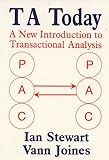 I have just rejoined Facebook again after a long time away and along with Twitter and LinkedIn it’s having a surprising effect on me. Lots of smiles! As a naturally private individual I have thought long and hard about joining the plethora of people already involved with social media sites. Over the past few months though I have made a conscious decision to get out there and connect with more people.
I have just rejoined Facebook again after a long time away and along with Twitter and LinkedIn it’s having a surprising effect on me. Lots of smiles! As a naturally private individual I have thought long and hard about joining the plethora of people already involved with social media sites. Over the past few months though I have made a conscious decision to get out there and connect with more people.
There’s much debate about the ethics of participating on social media sites as a psychotherapist. The International Transactional Analysis Association (ITAA) group on LinkedIn have been discussing this for the past few weeks and the topic has seen a range of opinions put forward on the morality of it all.
There is no doubt though that social media sites cannot be ignored. According to social media experts Brian Halligan and Dharmesh Shah, there are more than 200 million active users of Facebook with half of them logging on every day. Its fastest-growing demographic of people are those in the 35 years and older category. So why are they so popular?
in TA terms Social media sites provide a constant and pretty endless source of strokes. Eric Berne, the founder of Transactional Analysis defined a stroke simply as “a unit of recognition”.
Here’s some facts about strokes:
- Strokes can be physical, e.g. a pat on the back, or verbal, a quick “hello” or a lengthy conversation.
- Strokes can be conditional; “When you clean your room I think you’re fantastic”, or unconditional; “you’re fantastic”.
- Strokes can be positive “you’re great” or negative; “you stink”.
As social animals humans crave strokes. We will pretty much do anything for them. If we can’t get positive strokes then negative ones will do. For most of us, the only thing worse than being treated badly is being completely ignored. This explains why solitary confinement is the worst punishment a prisoner can be subjected to and why children who receive no praise quickly find that behaving badly gets them attention.
Both my LinkedIn and Facebook accounts are now regularly churning out positive strokes for me and I love it! It’s great to make contact daily with people I’ve known for years and I also love contributing ideas to discussions on LinkedIn and engaging with people I know less well. I’m finding the exchange of ideas thought provoking and can see how social media sites, with their groups and fan clubs, provide instant communities and a feeling of belonging.
In an age when real community is on the wain and relationships suffer as a result of our busy lives, social media sites can provide a stroke fix that can be a benefit to us all. I’m pretty sure that most people are sensible enough to realise that face to face relationships are also very important and should be valued and nurtured and that can be done if people use social media sites sensibly. In fact I would argue that sites like Facebook and LinkedIn, if used well, can enhance our face to face relationships as we communicate with our friends more frequently online. I also acknowledge that e-safety and boundary issues do raise their heads when using social media sites, maybe this is where common sense needs to come into play?
Join me on Facebook, LinkedIn and Twitter.
What do you think about this post? Please leave a comment if you have read it. It doesn’t have to be super intellectual, even a “Hi!” would be great!
If you are looking for therapy in Manchester give me a ring on 07966 390857

 Transactional Analysis is one way of understanding human personality. It was the brainchild of Eric Berne who trained as a psychoanalyst but became disillusioned with the methods he was expected to follow and wanted a more equal approach to the therapist/client relationship.
Transactional Analysis is one way of understanding human personality. It was the brainchild of Eric Berne who trained as a psychoanalyst but became disillusioned with the methods he was expected to follow and wanted a more equal approach to the therapist/client relationship.